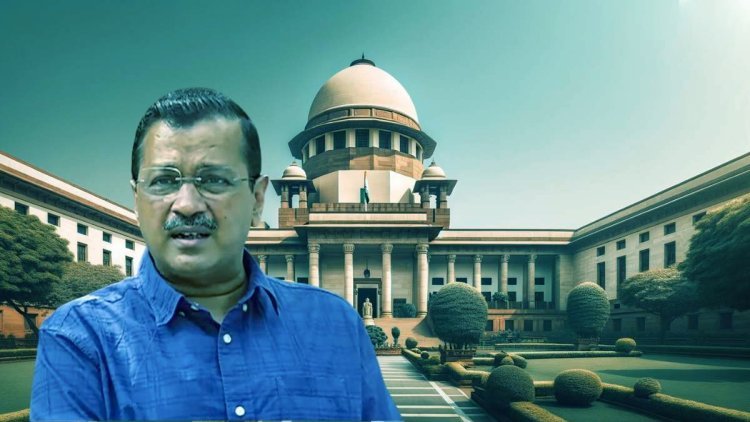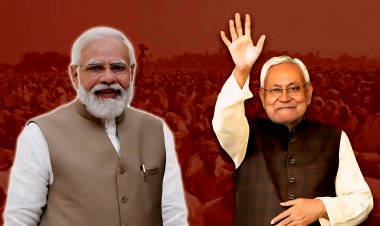Arvind Kejriwal gets bail, Supreme Court gives important decision, read the conditions
Delhi Chief Minister Kejriwal, who was in jail for a long time, has got bail from the Supreme Court today i.e. on Friday. AAP party workers are very happy with Kejriwal getting bail. AAP workers are writing on their social accounts that ultimately AAP and Kejriwal have won. Read on what conditions Kejriwal has got bail from the Supreme Court.

INTRO
- CM Kejriwal got bail from the Supreme Court.
- Arvind Kejriwal was in Tihar Jail for several months.
Delhi Excise Policy Case Delhi's Chief Minister Arvind Kejriwal has got bail from Tihar Jail after many months. Kejriwal's bail, who was in jail in the liquor scam, has brought a wave of happiness in the Aam Aadmi Party. Let us tell you on what conditions Kejriwal has got bail from the Supreme Court.
On what conditions has Kejriwal got bail
CM Arvind has got bail from the Supreme Court on two sureties of Rs 10 lakh each. At the same time, the Supreme Court has banned public comments on this case. The Supreme Court said that Kejriwal should cooperate in the trial. Kejriwal has also got bail in the CBI case. While hearing the Kejriwal case, both the judges have given different views.
- Kejriwal will have to deposit two sureties of Rs 10 lakh each.
- Any public comment was also banned.
- CM Kejriwal will not be able to go to the office.
- Kejriwal will have to cooperate in the case.
Justice Kant upheld the arrest, but Justice Bhuyan differed with the need and necessity of arresting Kejriwal. Justice Bhuyan said the arrest made by the CBI was only to thwart the bail granted to Kejriwal in the money laundering case. Justice Bhuyan said the CBI did not arrest Kejriwal for 22 months and arrested him just before his release in the ED case.
The court passed the verdict on the petitions filed by Delhi Chief Minister Arvind Kejriwal challenging his arrest in the case registered by the Central Bureau of Investigation (CBI) over the alleged Delhi liquor policy scam and seeking bail.
A bench of Justices Surya Kant and Ujjal Bhuiyan heard the case and reserved the verdict on September 5. Both the judges delivered separate judgments.
Justice Kant said that Kejriwal's arrest was legal and there was no procedural irregularity in it. Justice Kant said that there is no merit in the argument that the CBI did not follow the instructions of Section 41 of the Code of Criminal Procedure while arresting him. Also, both the judges were unanimous in the decision to grant bail to Kejriwal considering the fact that the chargesheet has been filed in the case and the trial is not likely to be completed in the near future.
At the same time, the conditions imposed by the coordination bench while granting interim bail in the ED case will also be applicable in this case. This will mean that Kejriwal will not be able to go to the Chief Minister's Office and Delhi Secretariat.
Kejriwal's current petition challenges the August 5 order of the Delhi High Court, under which his petition against the CBI arrest was rejected by a single judge bench and he was allowed to go to the trial court for bail.
He had also filed another special leave petition challenging the high court's refusal to consider his bail plea. The AAP chief was formally arrested by the CBI on June 26, 2024, when he was in the custody of the Enforcement Directorate in a money laundering case arising out of the alleged liquor policy scam.
A few weeks later, on July 12, the Supreme Court granted Kejriwal interim bail in the money laundering case, while referring his plea challenging the ED arrest to a larger bench. However, he remained in custody due to his arrest by the CBI (which began on March 21).













